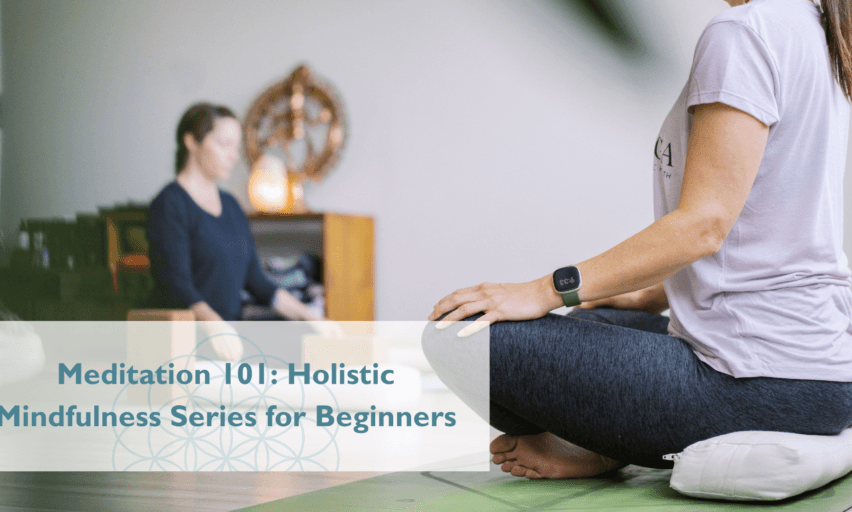
Beginner's Mind: Meditation & Mindfulness Series
Tuesdays 5:30-6:45pm

Share
Why Meditate?
Meditation provides instant results. You do not have to wait for enlightenment. Meditation is like sleep, the harder you try the more you know you are not going to fall asleep, but meditation is different from sleep because just by “practicing” meditation or sitting and concentrating on an object of choice. Your mind and body receive all of the benefits, even if you never reach the state of meditation.
MEDITATION RESEARCH
Herbert Benson, MD and his associates at Harvard Medical School have been conducting research since 1967, validating many of the physiological benefits of meditation. His subjects in meditation have shown reduction of chemicals associated with anxiety in the blood stream, brain waves slowed to patterns associated with relaxation, basal metabolic rate reduced (the energy a body expends at rest), heart rate lowered, muscle tension decreased and, for some, blood pressure also dropped. Benson used the term “relaxation response” to describe the constellation of effects produced by meditation states. He built on the work of WB Cannon on the fight-or-flight response and WR Hess’ protective mechanisms against overstress.
The Benefits they Discovered
• Lowers oxygen consumption. Decreases respiratory rate.
• Increases blood flow and slows heart rate
• Increases exercise tolerance in heart patients
• Leads to a deeper level of relaxation. Good for people with high blood pressure..returns it to normal
• Reduces anxiety attacks by lowering levels of blood lactate.
• Decreases muscle tension (any pain due to tension )and headaches.
• Builds self confidence
• Helps in chronic diseases like allergies, arthritis, etc.
• Reduces pre-menstral syndrome
• Helps in post-operative healing.
• Enhances the immune system. Research has revealed that meditation increases activity of natural-killer cells, which kill bacteria and cancer cells. Also reduces activity of viruses and emotional distress
• Increases serotonin production which influences mood and behavior. Low levels of serotonin are associated with depression, obesity, insomnia and headaches.
Root similar to “medicate” or “medical” and implies a sense of attending to or paying attention to something.
In Meditation you pay attention to your most subtle bodies.
6 CEUs